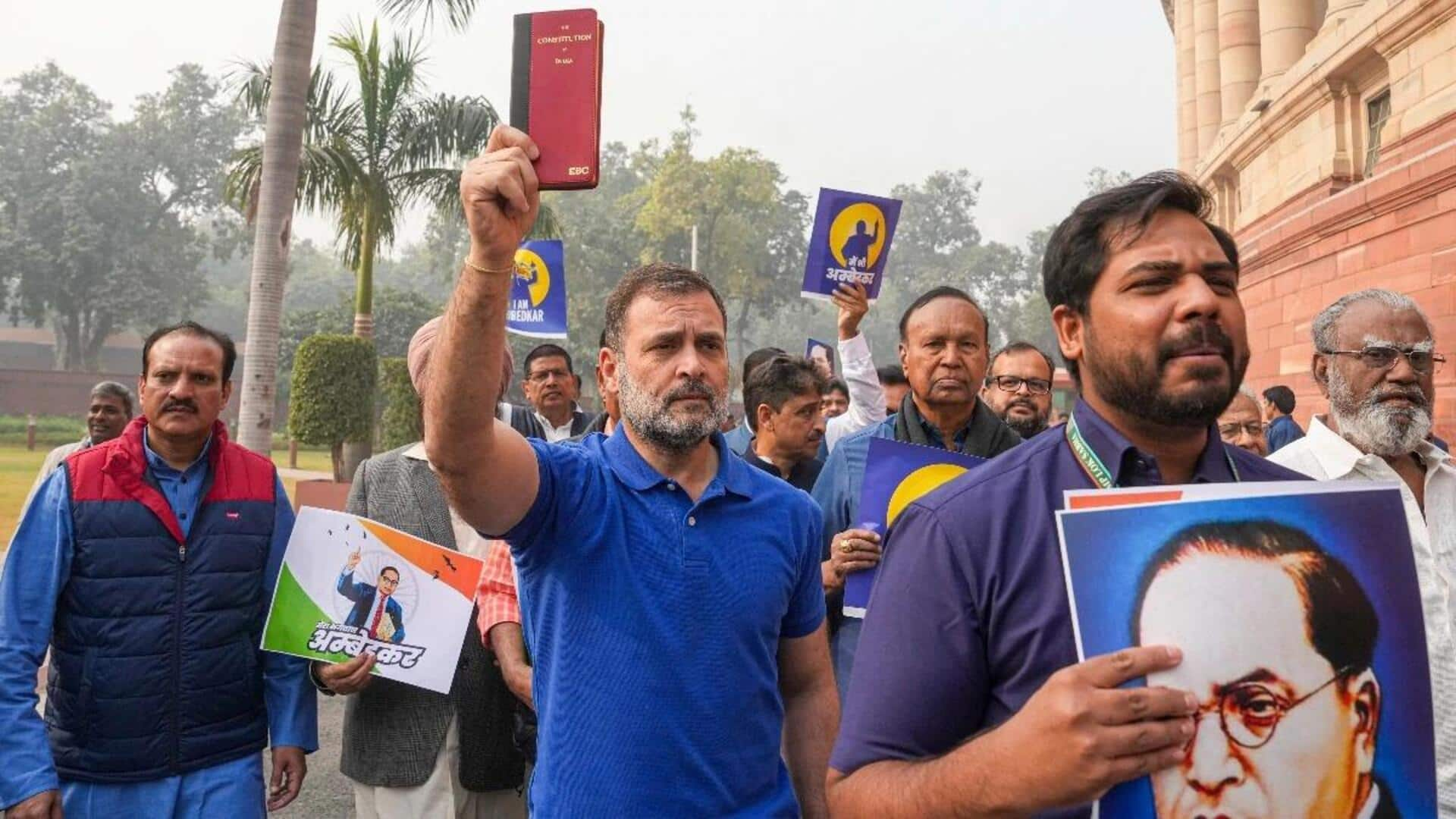
Can Rahul Gandhi be arrested for Parliament scuffle
What's the story
The Delhi Police has filed a First Information Report (FIR) against Congress MP Rahul Gandhi after a scuffle broke out in Parliament.
The complaint was filed by Bharatiya Janata Party's (BJP) Vadodara MP Hemang Joshi, who accused Gandhi of "physical assault" and "incitement."
Joshi claimed two BJP MPs were injured after being pushed by Gandhi during the scuffle.
Legal implications
FIR details and potential legal consequences for Gandhi
The FIR against Gandhi carries charges under Sections 115, 117, 125, 131, 351, and 3(5) of the Bharatiya Nyaya Sanhita (BNS).
These sections relate to voluntarily causing hurt and grievous hurt, endangering life or personal safety, the use of criminal force, and criminal intimidation.
He can be arrested without a court warrant because Sections 117 and 125 are cognizable offenses. However, arrest is not required for offenses punishable by up to seven years in prison, according to the Indian Express.
Counterclaim
Congress denies allegations, files counter-complaint
Furthermore, all these offenses are bailable, meaning that an accused should be given bail as a matter of right.
In the wake of the FIR, the Congress has denied the allegations and accused BJP MPs of pushing Congress chief Mallikarjun Kharge.
The party has filed a counter-complaint alleging misconduct by BJP MPs during their peaceful protest.
Congress MP Manickam Tagore called the FIR against Gandhi a "diversionary tactic."
Incident background
Origin of the Parliament scuffle and its aftermath
The face-off was triggered by Shah's Rajya Sabha statement that Ambedkar's name was often conjured unnecessarily.
His statement triggered protests by Congress leaders outside Parliament on Wednesday and Thursday.
At one such protest, BJP MP Pratap Rao Sarangi fell and injured his forehead.
Visuals showed Gandhi approaching injured BJP MPs when Nishikant Dubey accused him of "gundagardi" (rowdy behavior).
Gandhi replied he was trying to enter Parliament when BJP MPs blocked him.